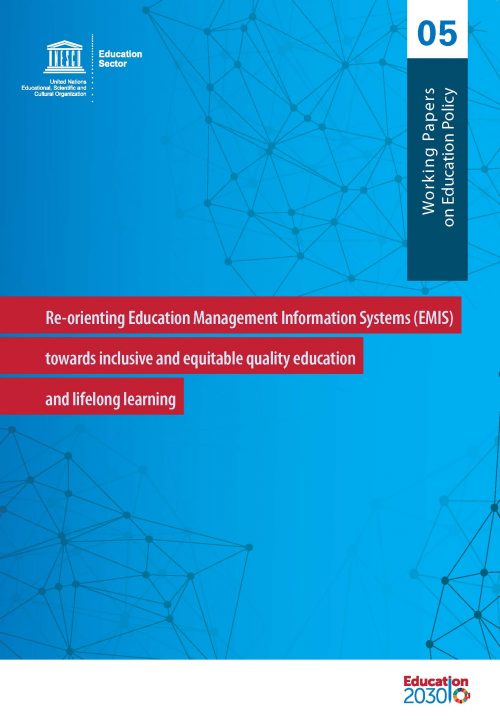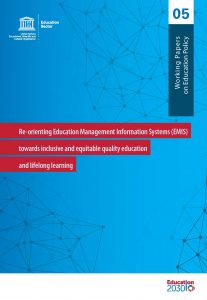
UNESCO EMIS Case Studies
Re-orienting Education Management Information Systems (EMIS) towards inclusive and equitable quality education and lifelong learning
This Working Paper provides conceptual frameworks and strategies to help countries re-orient their Education Management Information Systems (EMIS) to support inclusive and equitable quality education and lifelong learning opportunities for all, in line with Sustainable Development Goal 4 (SDG 4). It emphasizes the potential of EMIS to support the implementation of SDG 4 at the national, state, local and classroom levels. The paper first outlines how new international priorities for education — especially the focus on learning outcomes and learning across life in formal, non-formal and informal contexts — have placed new demands on EMIS. It posits that, going forward, EMIS should collect an expanded range of actionable data to both improve teaching and learning and provide insights into how education can be linked with different sectors to advance a wider range of development objectives.
The paper recommends that countries work to strengthen EMIS in at least four functional domains: management and administration; planning; policy formulation; and monitoring and evaluation. After establishing the need for robust data systems to support progress towards SDG 4 and the wider 2030 Agenda for Sustainable Development, the paper looks specifically at strategies to build technical tools; human resource capacities; and policies, plans, and institutional arrangements to support the development of EMIS. Case studies provide practical illustrations of how UNESCO is working with its Member States to reinforce data gathering capacities and leverage existing systems to inform and steer education reform. Finally, the paper reflects on future directions for EMIS, drawing attention to opportunities and challenges likely to emerge in the decade ahead.

